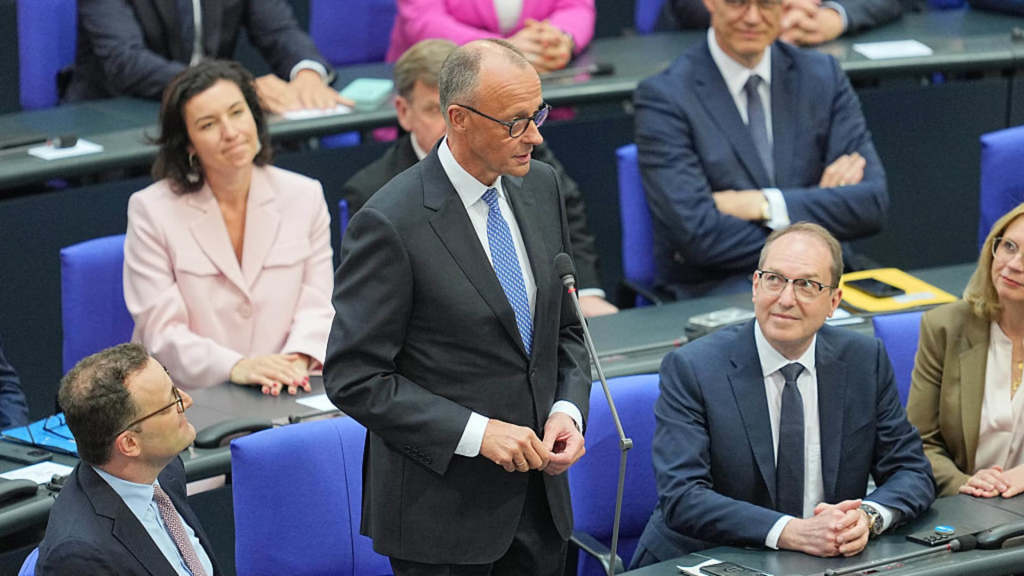On Tuesday, Friedrich Merz was elected as Germany’s new chancellor during a second parliamentary vote after a disappointing first attempt in which he did not attain the necessary support.
To secure his election, Merz required at least 316 votes from the 630 members of the Bundestag. Ultimately, he garnered support from 325 members.
His initial bid for the chancellorship earlier in the day resulted in just 310 votes, which was an unexpected setback that sparked hours of uncertainty regarding the timing and outcome of the subsequent vote.
After his successful election, Merz was formally appointed as chancellor by German President Frank-Walter Steinmeier in the afternoon.
The Dax stock market index showed signs of recovery following the announcement, although it was still down by 0.4% as of 3:22 PM London time.
Merz’s rise to chancellorship had been anticipated following the February federal election, where his party, the center-right Christian Democratic Union (CDU) and its Bavarian partner, the Christian Social Union (CSU), won the largest share of the vote.
They are expected to establish a coalition government with the center-left Social Democratic Party (SPD), which finished third in the election.
On Monday, the CDU-CSU and SPD parties finalized their coalition agreement after weeks of negotiations that commenced soon after the election. This agreement outlines several key policy areas, including migration, tax reforms, and social security measures such as minimum wage adjustments.
The coalition has already announced its cabinet picks, featuring Lars Klingbeil as the designated Vice Chancellor and Finance Minister, Katherina Reiche as the incoming Economy Minister, and Johann Wadephul as the planned Foreign Minister.
Friedrich Merz, now 69, has a rich background in both politics and business.
After completing his studies in law, he worked as a judge and lawyer before holding key positions at major corporations, including BlackRock Germany, and served on the boards of EY Germany and the Deutsche Börse.
His political journey with the CDU began during his school years, where he became involved with the party’s youth organization. He later represented the CDU in the European Parliament before joining the Bundestag.
Merz’s political career in the early 2000s was notably characterized by a rivalry with former Chancellor Angela Merkel, whose ascension at the party level coincided with Merz stepping back from active politics for several years.

Merz now steps into the role of leader amid significant challenges for Germany, including a slowing economy, internal conflicts related to migration, strained trade relations with the U.S., and pressing geopolitical issues arising from the Russia-Ukraine conflict.
There are heightened expectations as the newly established coalition aims to implement a fiscal package that addresses long-standing debt regulations and significantly invests in infrastructure and climate initiatives.
Carsten Brzeski, ING’s global head of macro, commented that while the government had a “strong and impressive start,” it has faced a series of missteps since. “Today’s events serve as a stark reminder of the challenges ahead, as the government strives to meet elevated expectations for investments and reforms,” he noted. “Merz and his administration are poised to tackle the formidable task of revitalizing the economy while harmonizing priorities within the coalition.”


























